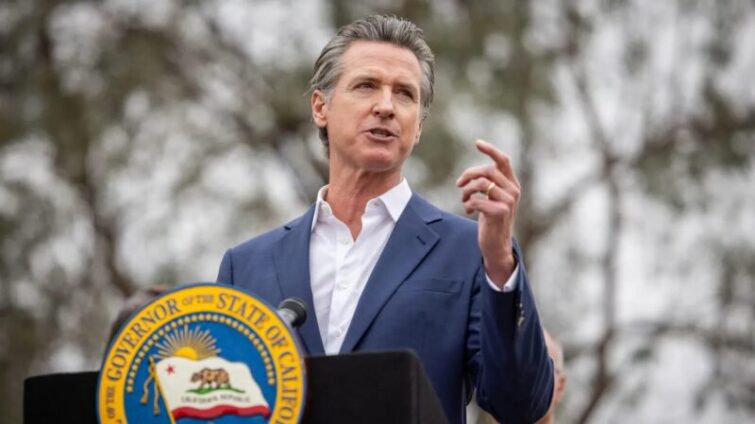
Audio By Carbonatix
The governor of California Gavin Newsom has blocked a landmark artificial intelligence (AI) safety bill, which had faced strong opposition from major technology companies.
The proposed legislation would have imposed some of the first regulations on AI in the US.
Mr Newsom said the bill could stifle innovation and prompt AI developers to move out of the state.
Senator Scott Wiener, who authored the bill, said the veto allows companies to continue developing an "extremely powerful technology" without any government oversight.
The bill would have required the most advanced AI models to undergo safety testing.
It would have forced developers to ensure their technology included a so-called "kill switch". A kill switch would allow organisations to isolate and effectively switch off AI systems if they were they became a threat.
It would also have made official oversight compulsory for the development of so-called "Frontier Models" - or the most powerful AI systems.
In his statement, Mr Newsom said the bill "does not take into account whether an Al system is deployed in high-risk environments, involves critical decision-making or the use of sensitive data."
"Instead, the bill applies stringent standards to even the most basic functions - so long as a large system deploys it," he added.
At the same time, Mr Newsom announced plans to protect the public from the risks of AI and asked leading experts to help develop safeguards for the technology.
Over the last few weeks, Mr Newsom has also signed 17 bills, including legislation aimed at cracking down on misinformation and so-called deep fakes, which include images, video, or audio content created using generative AI.
California is home to many of the world's largest and most advanced AI companies, including the ChatGPT maker, OpenAI.
The state's role as a hub for many of the world's largest tech firms means that any bill regulating the sector would have a major national and global impact on the industry.
Mr Wiener said the decision to veto the bill leaves AI companies with "no binding restrictions from US policy makers, particularly given Congress’s continuing paralysis around regulating the tech industry in any meaningful way."
Efforts by Congress to impose safeguards on AI have stalled.
OpenAI, Google and Meta were among several major tech firms that voiced opposition to the the bill and warned it would hinder the development of a crucial technology.
Latest Stories
-
Police arrest suspect for unlawful possession and attempted sale of firearm
49 minutes -
3 arrested in connection with Tema robberies
57 minutes -
Your mouth on weed is nothing to smile about
1 hour -
25% university fees hike, what was the plan all along? — Kristy Sakyi queries
3 hours -
Some OMCs reduce fuel prices; petrol going for GH¢10.86, diesel GH¢11.96
3 hours -
Trump says health is ‘perfect’ amid ageing concerns
4 hours -
China’s BYD set to overtake Tesla as world’s top EV seller
4 hours -
Joy FM’s iconic 90’s Jam returns tonight: Bigger, better, and packed with nostalgia
4 hours -
Uproar as UG fees skyrocket by over 25% for 2025/2026 academic year
5 hours -
Japan PM joins fight for more female toilets in parliament
6 hours -
Ga Mantse declares war on fishing industry child labour
7 hours -
Adom FM’s ‘Strictly Highlife’ lights up La Palm with rhythm and nostalgia in unforgettable experience
8 hours -
OMCs slash fuel prices as cedi gains
9 hours -
Around 40 dead in Swiss ski resort bar fire, police say
10 hours -
AFCON 2025: Aubameyang and Nsue make history among oldest goalscorers
11 hours

